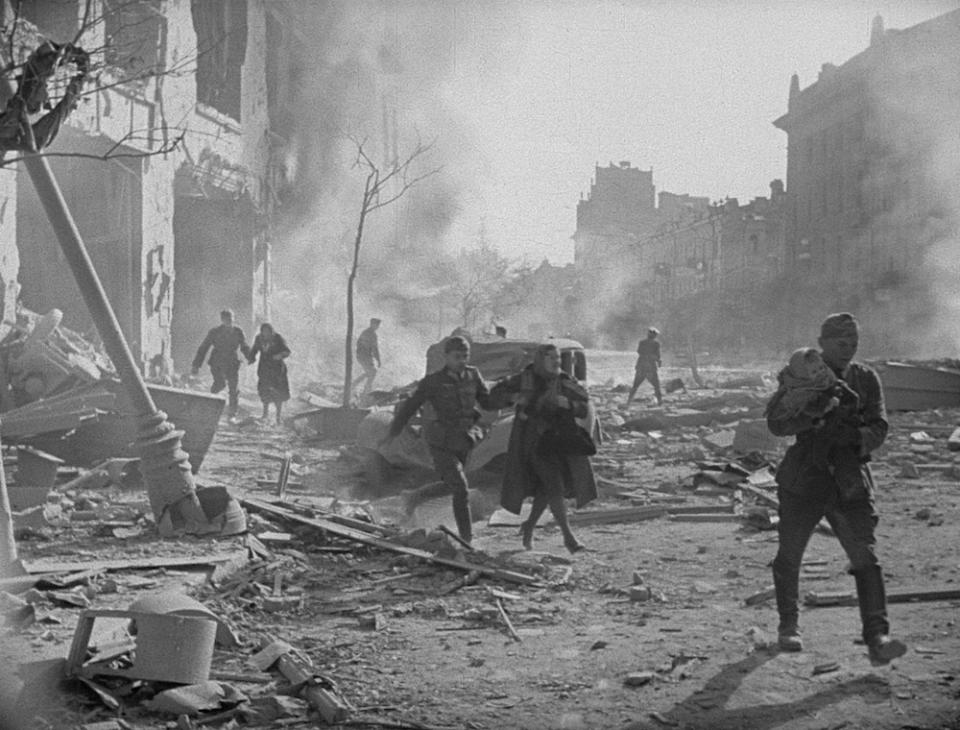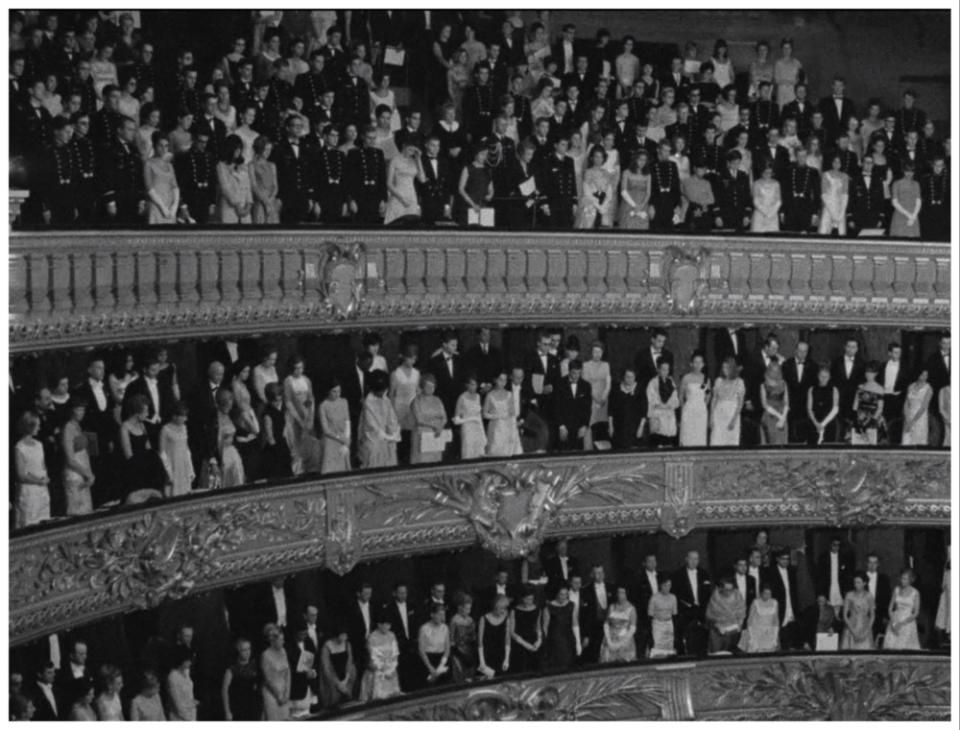Sergei Loznitsa Talks ‘Deconstructing’ Archive Footage, His ‘Hardest’ Film ‘Babi Yar. Context’: ‘I Found Myself in the Center of the Cyclone’
- Oops!Something went wrong.Please try again later.

Sergei Loznitsa met with “immediate confrontation” following the premiere of “Babi Yar. Context,” he revealed at Ji.hlava Documentary Film Festival.
The film focused on the massacre of nearly 34,000 Jews at Babi Yar in Kyiv, Ukraine in 1941.
More from Variety
Elvis Lenic's 'Ship,' About Croatian Shipyard, Wins at Ji.hlava Documentary Festival
Producer Pierre-Olivier Bardet, Honored at Ji.hlava, Relishes Filmmakers Who Go Their Own Way
“I found myself in the center of the cyclone with this one. Ukraine was the only country where this film was heavily criticized. It’s a painful story and dangerous footage. I was editing it for a very long time, waiting for my emotions to go down,” he added, describing the film as his “hardest” one yet.
“I don’t know how it has transformed me, but maybe it’s just my destiny to touch on these kinds of topics.”
Addressing the audience remotely during the Conference on Ethics in Documentary Filmmaking, Loznitsa – who also presented his 2020 release “A Night in the Opera” – commented: “If we consider film as art, there is no ethics in art. Ethics exist in our life. We can talk about it only when we talk about how we make documentaries.”
That being said, there is still a certain kind of footage he just won’t use.
“When I was making ‘Babi Yar,’ there was material I couldn’t watch and couldn’t use. There are limits to our perception. If we see something too [shocking], it immediately takes us out of the film,” he noted.
“I will give you a simple example: if someone has filmed somebody else committing suicide in front of his camera, what happens when I watch it? I am just another person who didn’t interfere. Somehow, I am participating in it. For me, it’s an amoral position to be in.”

Loznitsa, who has been working with archive footage for years, likens it to a “time machine.”
“You have a possibility to come back to a moment when something significant happened, but we didn’t understand it back then. Take ‘The Kiev Trial’ [depicting one of the first post-war trials convicting German Nazis and their collaborators]. They shot the execution, very meticulously, and then hid it in the archives. They decided not to use it and then I found it.”
“I don’t want to tell these stories with narrators, with someone who is explaining everything. No. I want to capture the atmosphere, show how people [used to] speak, dress and how they behaved. How it was, more or less.”
More or less, also because trying to capture “clear” history is a hopeless endeavor.
“Impossible. It’s always someone’s opinion and their point of view. I try to keep my distance in each film, but ultimately, I am the one who decides what to show. I create these narratives, these meanings. Which means I am responsible for it,” he said.
“You take responsibility for everything you use and everything you make.”
You can also “deconstruct” existing material, he told the audience.
“What do you think about Dziga Vertov’s films? It’s pure propaganda, because he was an honest communist, but it’s also a document of that era. Propaganda is the result. You can always re-edit this footage and use it the way you want.”

In 2008, he made “Revue,” based on archive propaganda newsreels produced in the USSR in the 1950 and 60s.
“It was a very interesting experience. I got rid of the music, of the narration and just watched the images. After that, I decided to make a film about propaganda. Make it work for me, because I fought with this [material] and won. I created new meaning.”
Running into “insolvable questions” is to be expected, however, especially when dealing with politically charged footage.
“I am not forcing you to take a stand as a viewer. I want you to reflect on these topics. Now, we are facing so many conundrums. We don’t know how the Russian invasion of Ukraine will end. What would this victory mean and how do you even define it? What should be done in Gaza?!”
“It’s like the Hamletian dilemma. He couldn’t keep silent and just forget everything, but in trying to protect his dignity he ended up crossing so many lines.”
Best of Variety
Sign up for Variety’s Newsletter. For the latest news, follow us on Facebook, Twitter, and Instagram.

